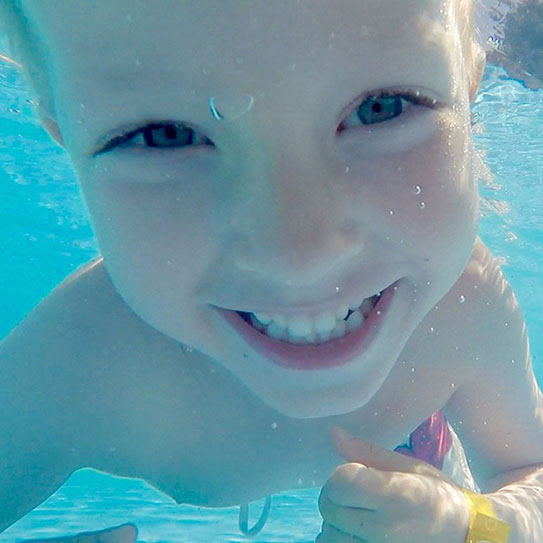Water Activities and Your Teeth

To the avid swimmers out there, you may have noticed that your teeth are at their most sensitive after you get out of the pool.
It’s not something that’s obvious after just one afternoon at the lap pool, but endless swimming time can take a toll on our teeth.
Swimmer’s Calculus: Enamel Erosion from Pool Chlorine
The term “swimmer’s calculus” might sound like something out of an advanced math class, but it actually refers to a dental health condition. After prolonged exposure to the acidic chlorine ions in pool water, a swimmer’s teeth can develop yellow or brown stains.
While chlorine is great for keeping the pool sanitary for all the people who enjoy swimming in it, it can cause the water’s pH levels to become more acidic if it isn’t monitored carefully. Because our teeth are so vulnerable to erosion from acid, even the mild acidity of pool water like this can increase the risk of developing these stains.
Scuba Divers Have Their Own Dental Health Concerns
Maybe you prefer scuba diving over swimming at the local pool. In your case, the risk to keep in mind isn’t swimmer’s calculus. Instead, you could be at risk of something called “tooth squeeze” or barodontalgia.
Have you ever felt the pressure building up in your ears when you dive to the bottom of the deep end? A similar pressure can build inside teeth — particularly teeth with untreated cavities or that have undergone faulty dental work. The pressure can grow to such a degree that it fractures the tooth, which is why we recommend starting your diving season off with a dental visit. That way you’ll know which teeth are more vulnerable.
Ear and sinus squeeze are other problems you may encounter while diving:
How Well Does Your Scuba Mouthpiece Fit?
A common struggle for divers is that those “one size fits all” mouthpieces are more like “one size fits none.” However, it’s rare for anyone who doesn’t dive a few times a week to own a custom-fitted mouthpiece. At our practice, we think they’re worth the investment, because a mouthpiece that doesn’t fit can lead to trouble for your teeth.
You might have to clench down on the mouthpiece to keep it from falling out during the dive, and that can put a lot of strain on the jaws, even causing temporomandibular joint disorder (TMD). If you don’t have your own mouthpiece, and especially if you dive at least a few times per year, consider getting a custom-fitted diving mouthpiece.
Any Other Teeth and Water Activities?
Whatever questions you have about dental health and how to protect it while diving and swimming, don’t hesitate to bring them to us! One final danger to watch out for is that the surfaces around pools are often slippery due to all the water, which is a major trip hazard. We minimize our risk of getting a dental injury at the pool by not running, coming out of the water carefully, and not diving into shallow water.
